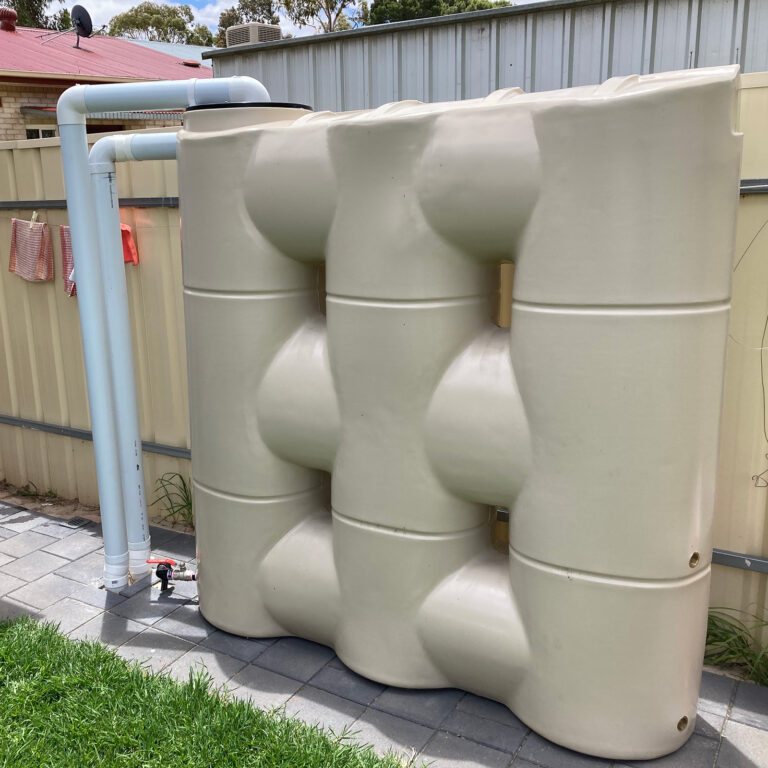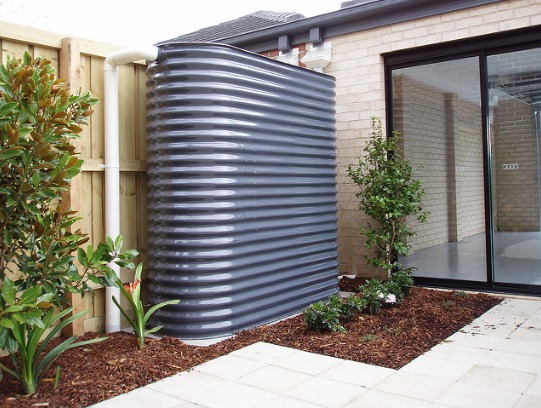Slimline Water Tanks: Trendy and Practical for Modern Homes
Exploring the Different Uses Rain Containers for Residential and Commercial Residences
As the worldwide focus on sustainable living practices continues to intensify, the utilization of rain containers in both household and business settings has arised as a significant remedy. The complex uses of rainwater containers offer a compelling case for their fostering, not just as a functional water-saving measure yet additionally as a testament to responsible source administration.
Benefits of Making Use Of Rain Tanks
Utilizing rain tanks supplies many advantages for both houses and neighborhoods in terms of water preservation and sustainability. One of the vital benefits of making use of rainwater tanks is the considerable reduction in dependence on mains water system - Slimline water tanks. By capturing and saving rainwater for later usage, individuals and areas can decrease their need for treated water, eventually reducing the concern on water therapy centers and reducing power usage connected with water transport and therapy
Furthermore, rain harvesting with tanks offers a reputable alternative water resource throughout times of water limitations or scarcities. This stored rainwater can be made use of for various non-potable functions such as watering, purging toilets, and washing garments, reducing the stress on typical water sources. Furthermore, utilizing rain tanks can result in cost financial savings for both households and communities by reducing water costs and lowering the need for costly facilities developments to fulfill expanding water demands.
In essence, the usage of rain containers supplies a lasting and eco-friendly method to water administration, profiting both private customers and the more comprehensive area in regards to water preservation, cost-efficiency, and resilience.
Rain Container Usage in Irrigation
Given the benefits of rain containers in preserving water resources and reducing reliance on keys water supply, a significant application hinges on making use of saved rain for watering functions - Slimline water tanks. Rainwater gathering systems can efficiently gather and store rainwater, providing a lasting water resource for sprinkling yards, yards, and agricultural fields. By using rain for watering, property proprietors can minimize their reliance on cured water sources, leading to set you back financial savings and environmental benefits

Among the primary advantages of making use of rainwater for irrigation is its pureness. Rain is naturally soft and devoid of the chemicals and additives typically located in mains water, making it optimal for beneficial plants without the risk of dangerous results. Additionally, rainwater goes to ambient temperature level, which can profit plant growth by preventing temperature level shocks that can accompany cold mains water.
Rainwater Storage Tanks for Commode Flushing

Executing rain storage tanks for toilet flushing is a cost-efficient and ecologically friendly method that can be quickly integrated right into both domestic and business residential properties. The stored rain can be used to purge toilets by linking the tank to the existing pipes system. This simple yet reliable solution can substantially decrease water usage in a building, especially in locations where water scarcity is a problem.

Including Rain Containers in Landscape Design
An efficient method for improving sustainability in landscaping involves incorporating rain storage tanks to enhance water usage and promote environmentally friendly practices - Slimline water tanks. Incorporating rain containers in landscaping provides numerous advantages for both property and business residential or commercial properties. These tanks can record and keep rainwater drainage from roofings, which can then be made use of for watering gardens, grass, and plants. By using rainwater for watering functions, homeowner can minimize their reliance on metropolitan water sources, leading to set you back savings and preservation of valuable water sources.
Along with offering a sustainable water resource for landscape design requirements, rain storage tanks can likewise aid in taking care of stormwater overflow. By capturing rainwater that would otherwise flow right into storm drains, these containers can mitigate disintegration, reduce flooding risks, and stop air pollution of natural water bodies. Moreover, including rainwater tanks in landscaping can add to the total visual appeal of the home, showcasing a commitment to environmental stewardship.
Industrial Applications of Rainwater Storage Tanks
Making use of rain containers in business setups supplies a lasting solution for water browse this site management and conservation, benefiting businesses and the environment alike. Commercial applications of rainwater tanks are diverse and increasingly popular due to the cost financial savings and ecological benefits they give. One vital business usage is for watering functions, where gathered rainwater can be used to water landscaping, yards, and farming areas surrounding commercial homes. This can result in considerable reductions in water costs and dependence on local water resources.
Furthermore, rain storage tanks can be incorporated right into the fire suppression systems of business buildings. By having a dedicated water resource for firefighting purposes, organizations can improve their fire precaution and potentially minimize insurance costs. Additionally, rain collected in containers can be treated and utilized for non-potable purposes within industrial residential or commercial properties, such as flushing commodes, cleaning, and cooling down systems. This not just conserves freshwater sources however additionally reduces operating expense for services. Overall, the unification of rainwater containers in industrial setups presents a sensible and environmentally liable approach to water administration.
Verdict
Finally, rainwater storage tanks use many advantages for both household and commercial homes. From irrigation to bathroom flushing and landscape design, making use of rain storage tanks can assist preserve water sources and minimize water costs. In addition, including rain containers in business setups can cause substantial expense financial savings and ecological benefits. In general, the flexibility and sustainability of rainwater tanks make them an important investment for any residential or commercial property owner looking to increase water efficiency.